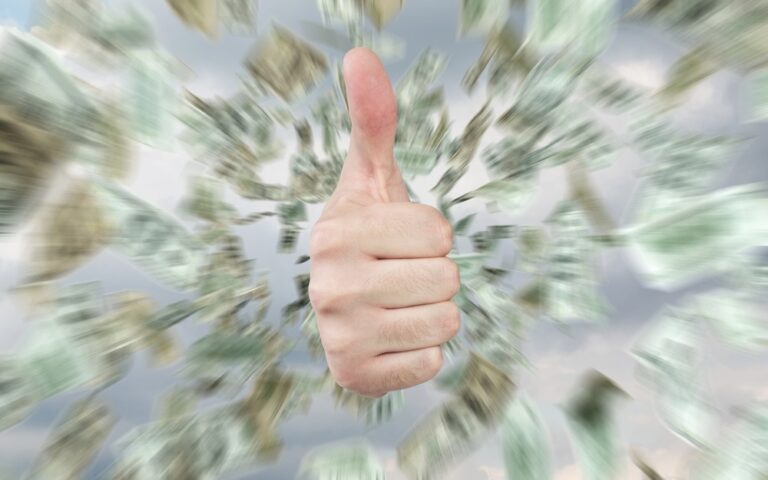Textbooks and classes give two main reasons for studying economics. First, it helps us understand the social world we live in, and second, it helps us make better public policy decisions. An example is found in Adam Smith’s The Wealth of Nations. By understanding what makes a country rich compared to others, we may be able to create a roadmap for other countries to achieve prosperity as well.
A less often discussed motive for studying economics is to improve personal decision-making. Economists use economic reasoning to make better decisions in their personal lives, but they do not always suggest that it is in the greater good of students or the public. This is probably because economics is too often confused with the study of finance and business. Economic theory is not a set of recipes for making money. However, it can help students get a clearer idea of how to get the most out of life.
The joke that you don’t need a genius to get rich has a kernel of truth in it. Here is one:
At a 10-year high school reunion, the middle school math teacher arrives in a beat-up old sedan, and his old friend arrives in a shiny new convertible and all the trappings of wealth. A math teacher recalls that this friend was hardly talked about in his high school class. “You seem to be doing well,” he said, greeting his friend. “What’s the secret?” my friend replied. “I just follow the 5 percent rule: ‘Buy something for $5 and sell it for $10.’
While it is true, and perhaps a virtue of a market economy, that individuals with little in-depth knowledge of mathematics or how the world works can build wealth, it is possible that wealth can be maintained with some understanding of economics. will be higher. If incomes remain the same, or opportunity costs are poorly evaluated, high incomes may have little current assets.
A basic assessment of opportunity costs can help you make financial decisions. For example, if you are offered a 0% interest rate, it is almost always better to finance something over a period of time. If you have to pay $1,200 now or $100 per month for 12 months interest-free, the latter is better unless there are other significant transaction costs associated with that option. If you make your payments on time every month while earning simple interest on the money you keep in the bank, you’ll earn about $27 in extra interest for the year, assuming an interest rate of 5%. So you get what you bought plus $27 (even more with compound interest). Decisions like this can add up, and every dollar counts.
As a result of this, paying taxes early is likely not worth it. If you receive a large refund after filing your taxes, you have overpaid for the year and have essentially lent the government money at zero interest from the time you pay until you receive your refund. Masu. Some people may be worried about being hit with a large tax bill at the end of the year, and that’s understandable. Another option is to keep the money owed to the government in an interest-bearing account until the end of the year, then pay the taxes and then keep the interest earned. The same example above applies here as well.
The Efficient Market Hypothesis, proposed by economist Eugene Fama, suggests specific advice regarding investing in financial markets. In other words, they don’t know much more than the market (and professional portfolio managers don’t either), which means diversifying and minimizing transaction costs. Economics does not propose a “get rich quick” plan, but it does offer a “get rich slow” plan.
Indeed, many economists clearly offer economic lessons for better decision making. Justin Wolfers and Betsy Stevenson focus on this on their podcast, “Think Like an Economist,” which is still worth listening to, even though they stopped producing episodes a few years ago. Steven Landsburg provides useful insights in The Armchair Economist. Tyler Cowen offers advice on how to use economics in An Economist Get Lunch and Discover Your Inner Economist.
In his blog and new book, Self-Help Is Like a Vaccine, Brian Caplan uses theory and clear thinking to provide practical advice on real-life issues that people care about. I am. Many have attested to the value of his advice, and much of this essay has been learned from him through his writing and teaching.
Jane Austen is reported to have said, “A large income is the best secret to happiness I have ever heard.” Funny and true, the law of diminishing returns suggests that beyond a certain income level, each additional dollar does not bring you any more happiness.
Economists know that money isn’t everything. It is a stand-in for the power to control resources and live the life you want. If you can secure that lifestyle by means other than money, it’s natural to do so. Of course, many people without formal knowledge of economics are already good at using such thinking to make decisions in life, and may just not realize that they are doing so. No.
Giorgio Castiglia is a program manager for competitive projects at the Mercatus Center and a doctoral student in economics at George Mason University.


